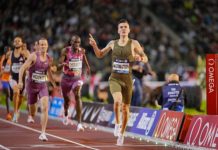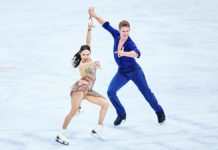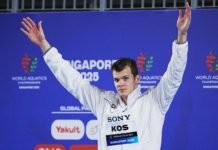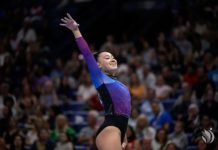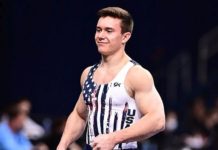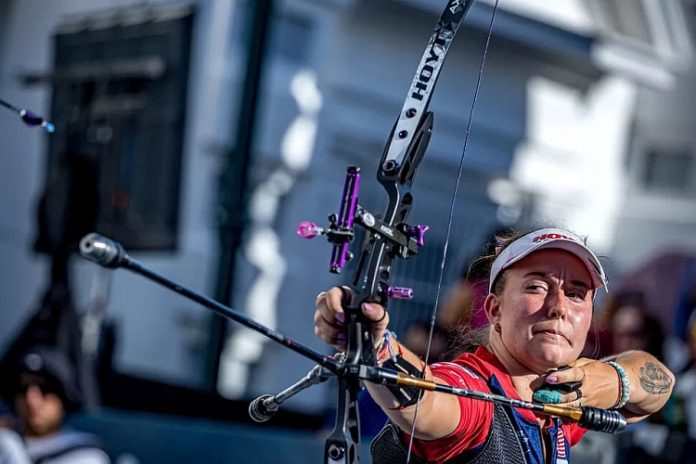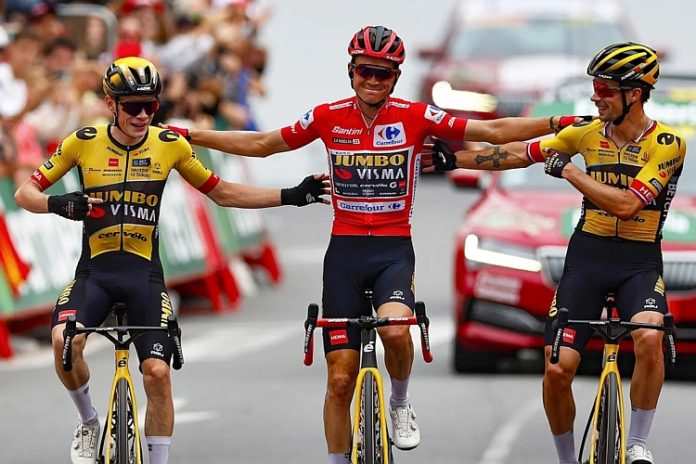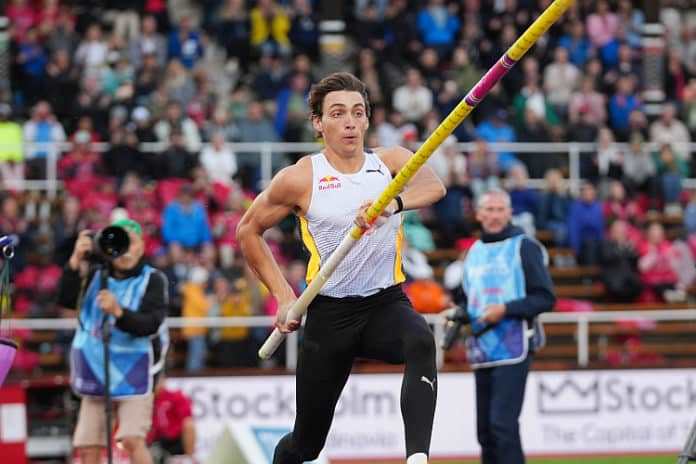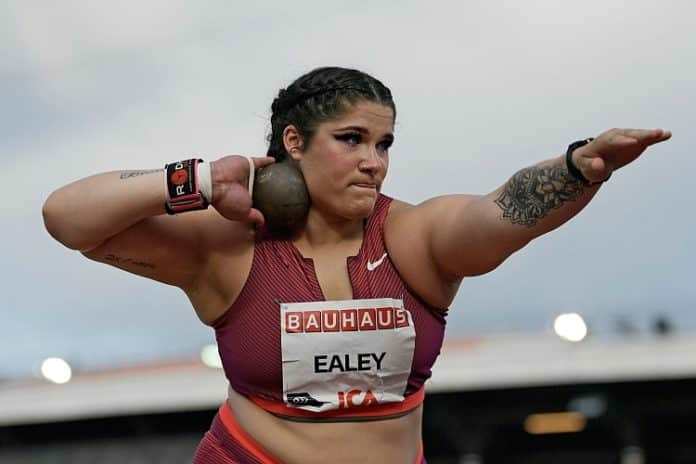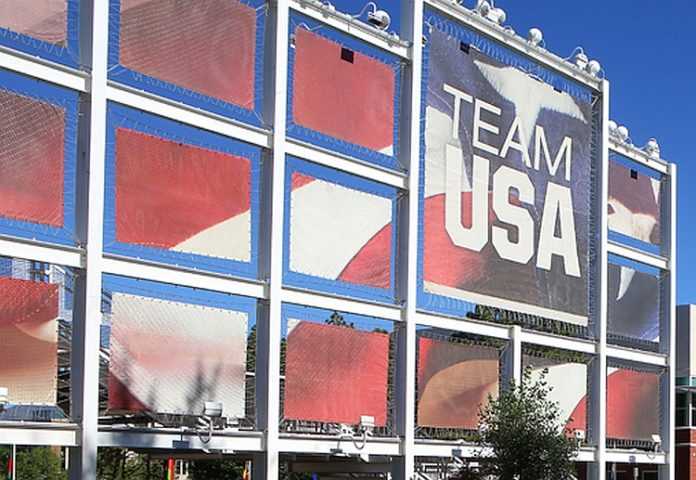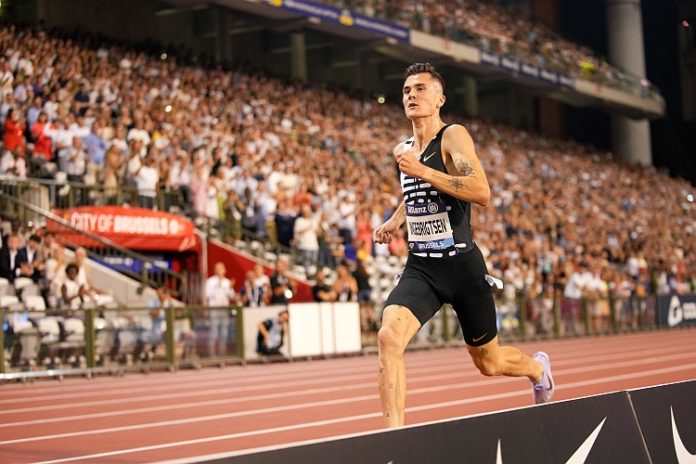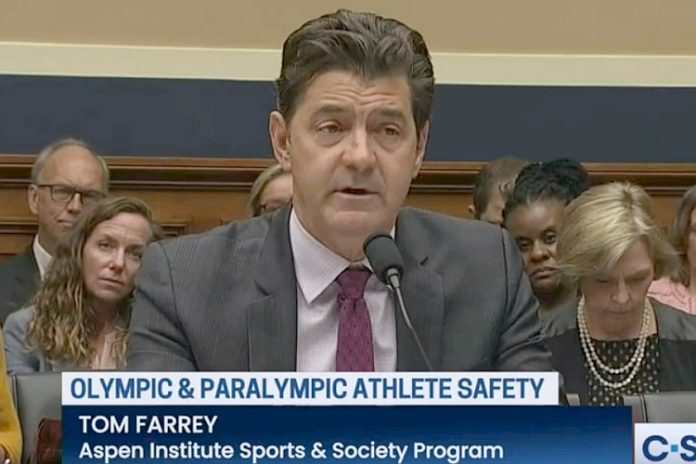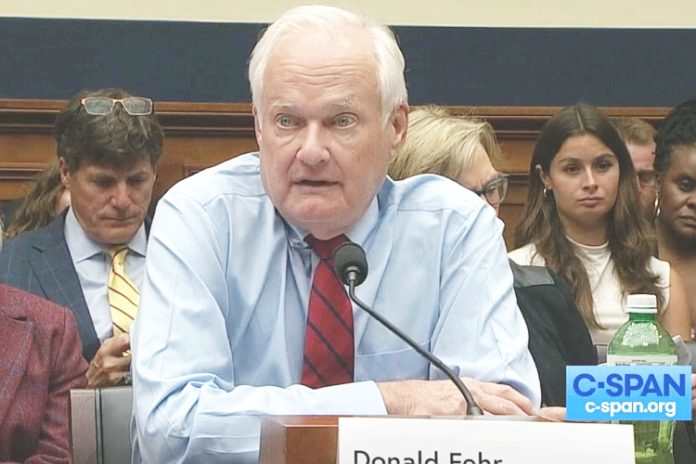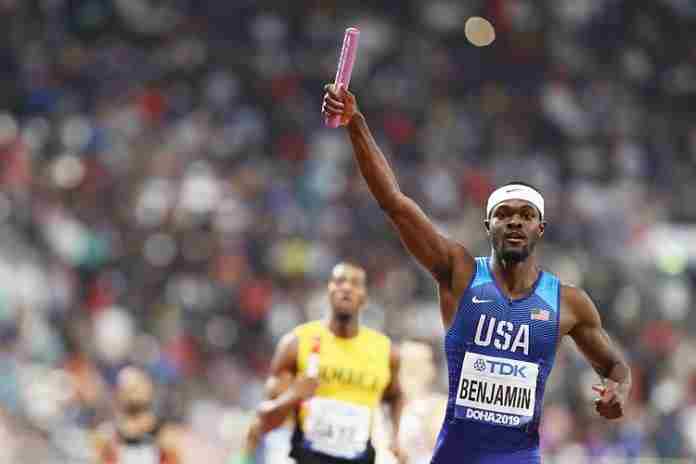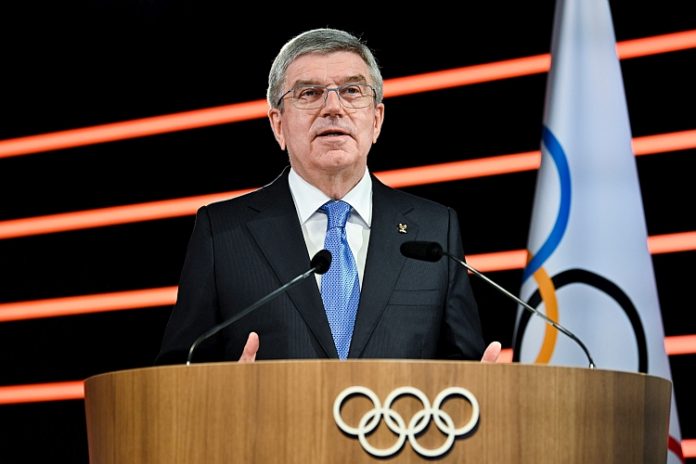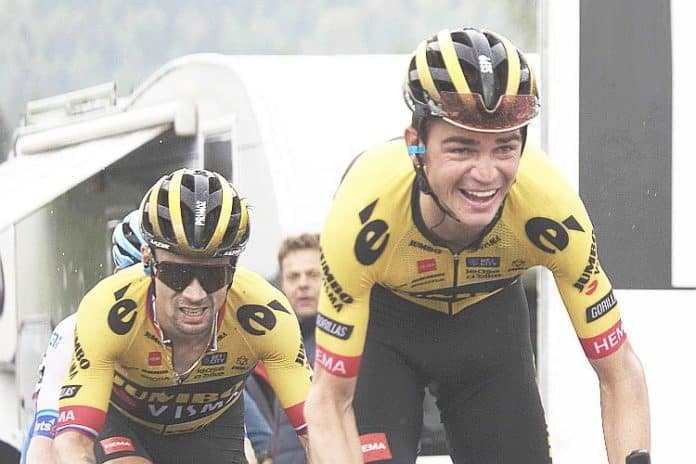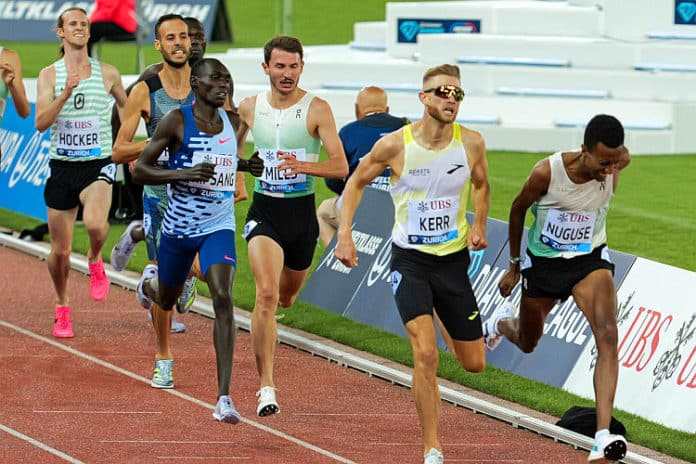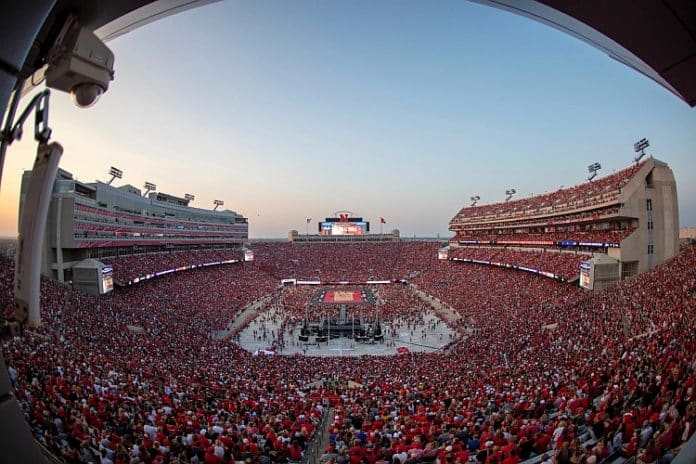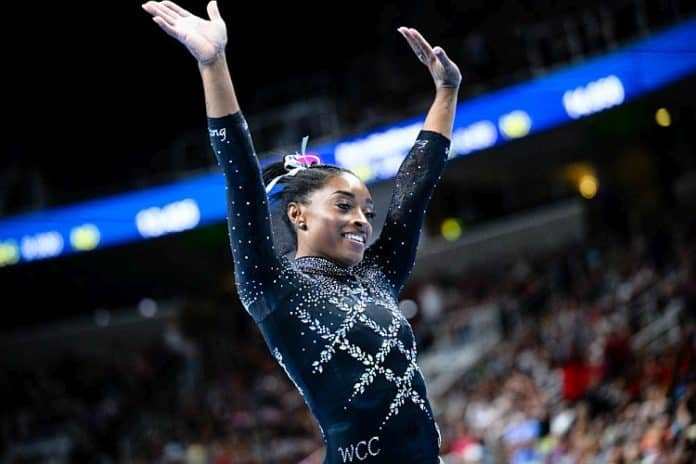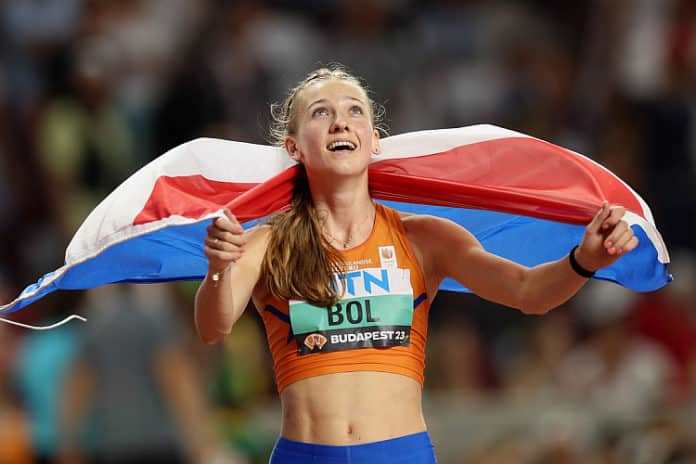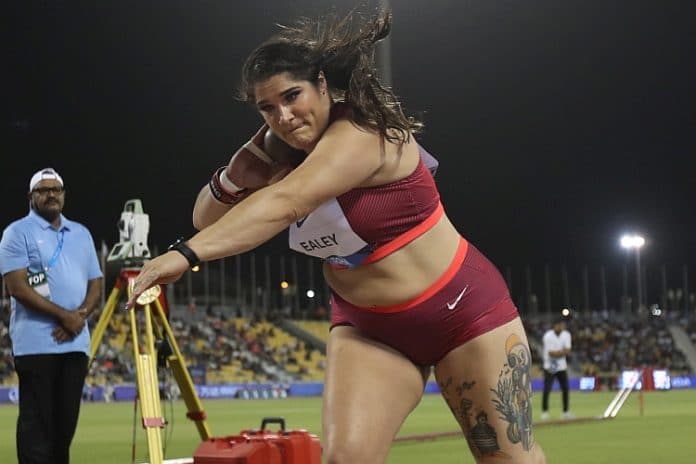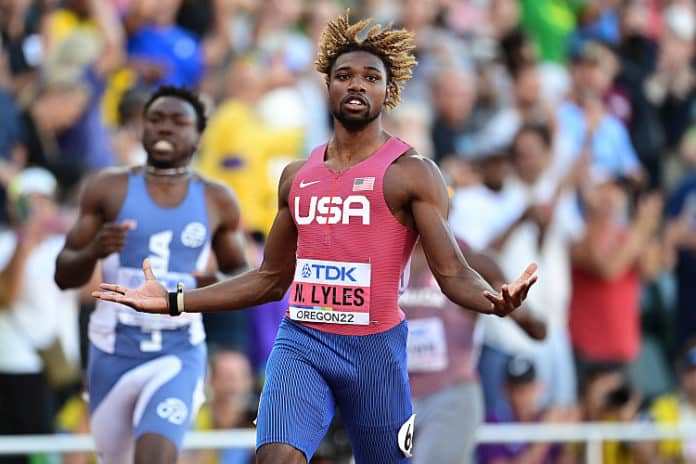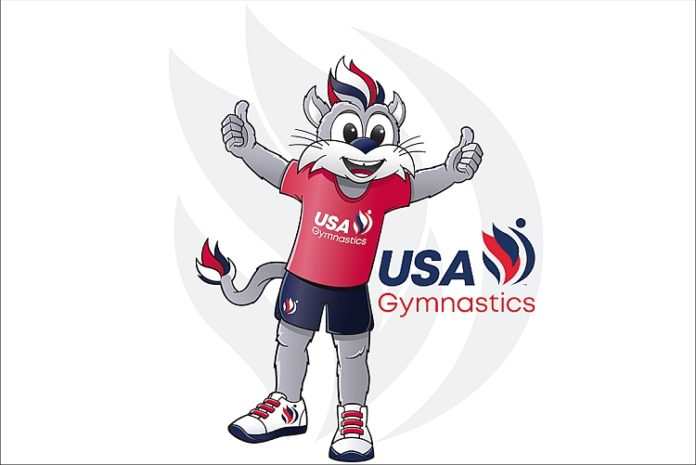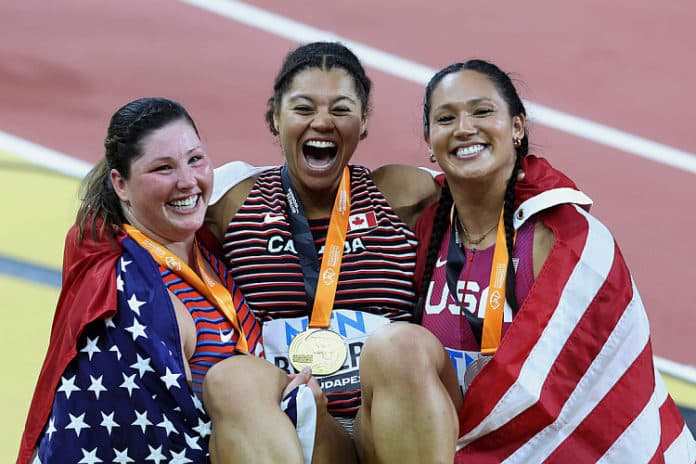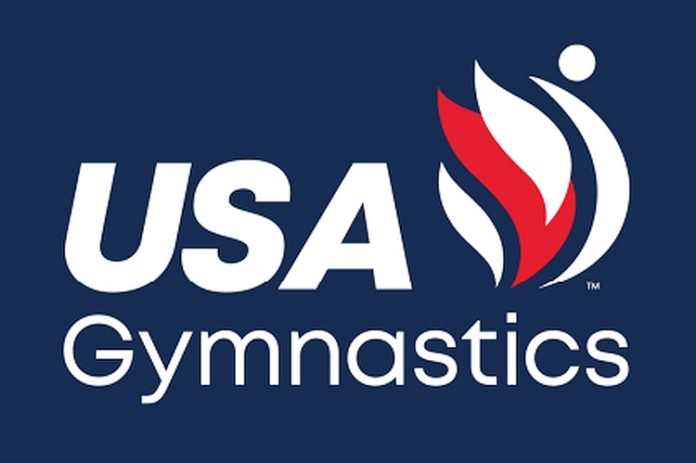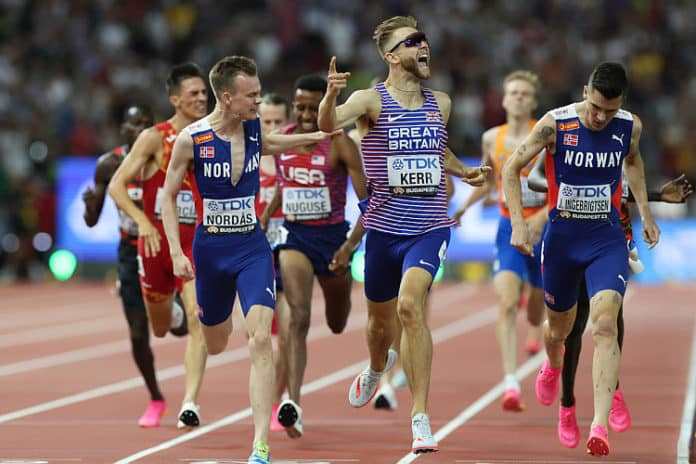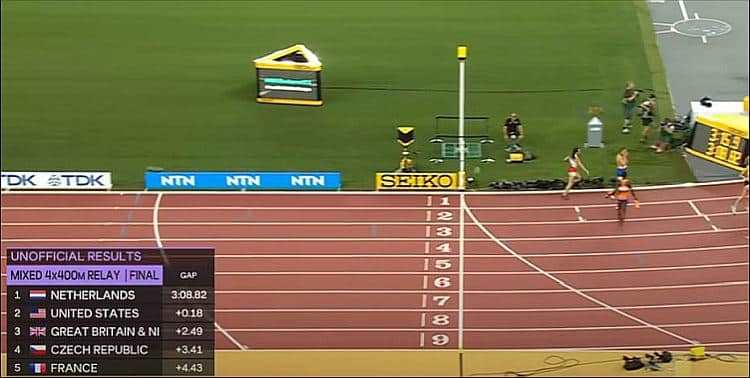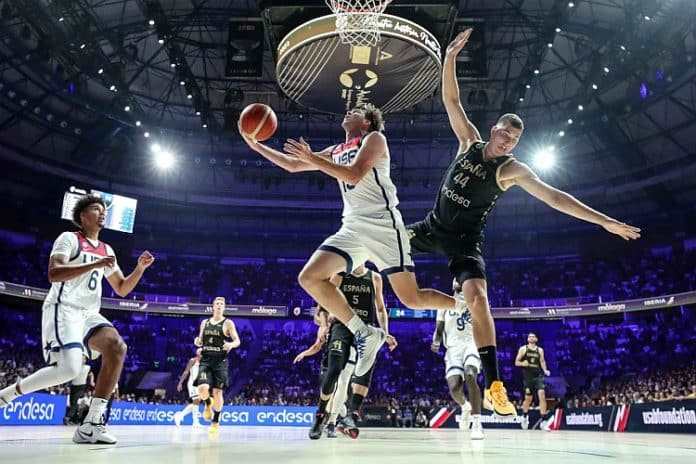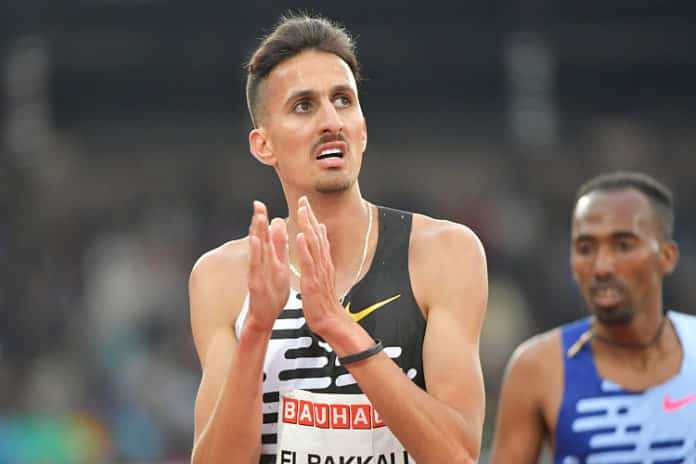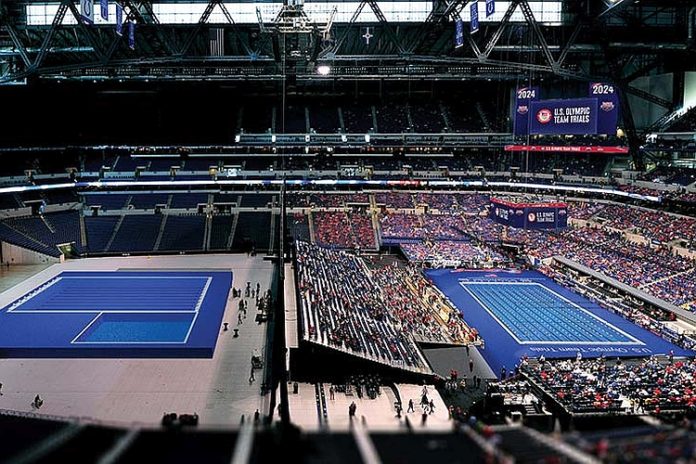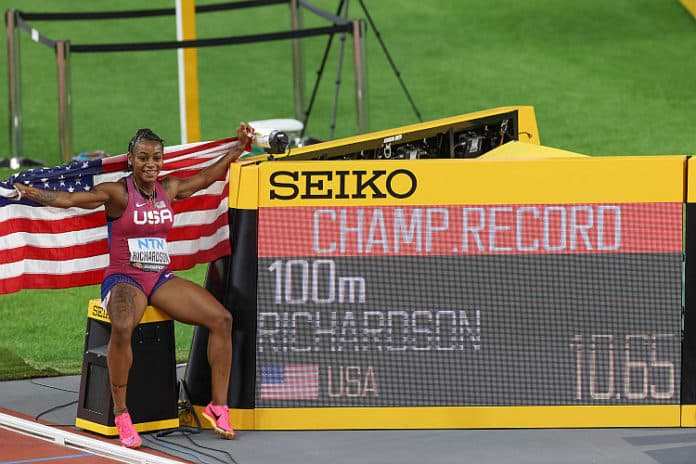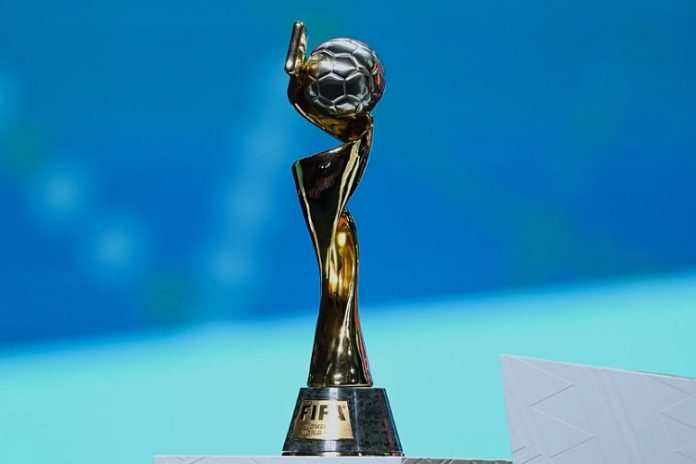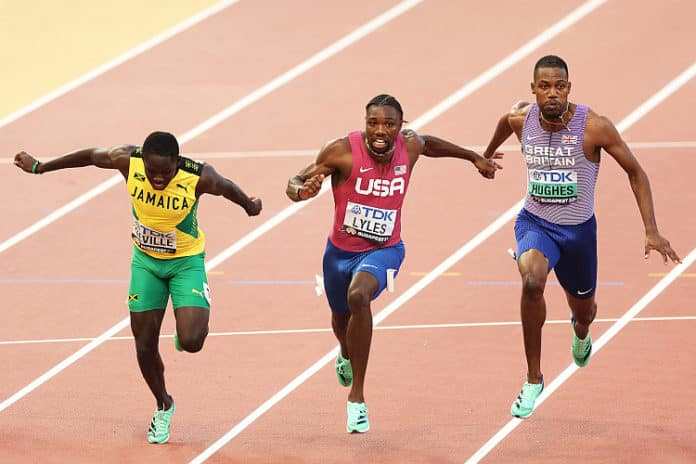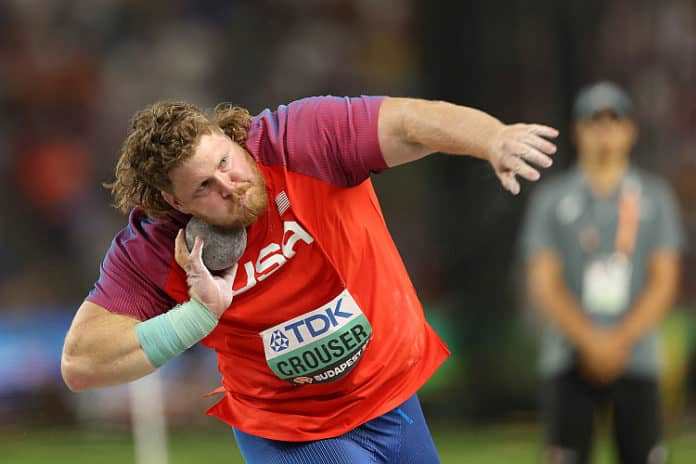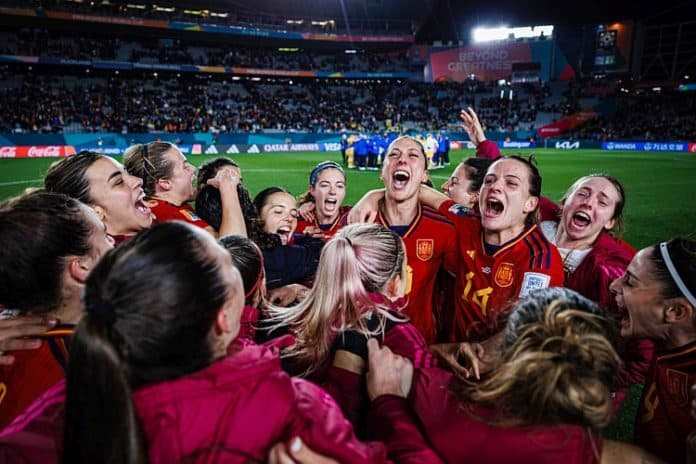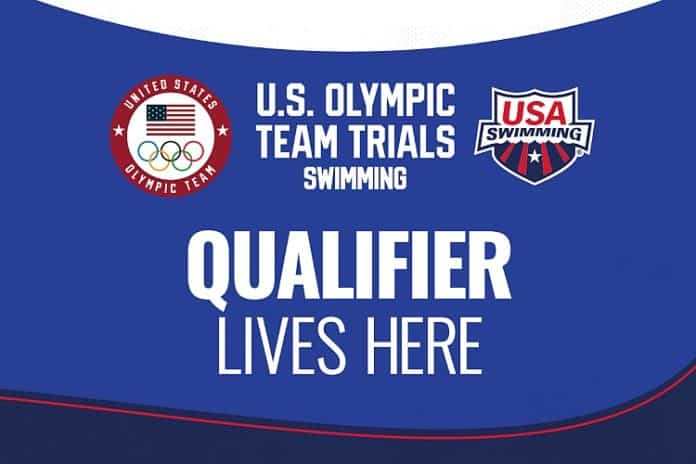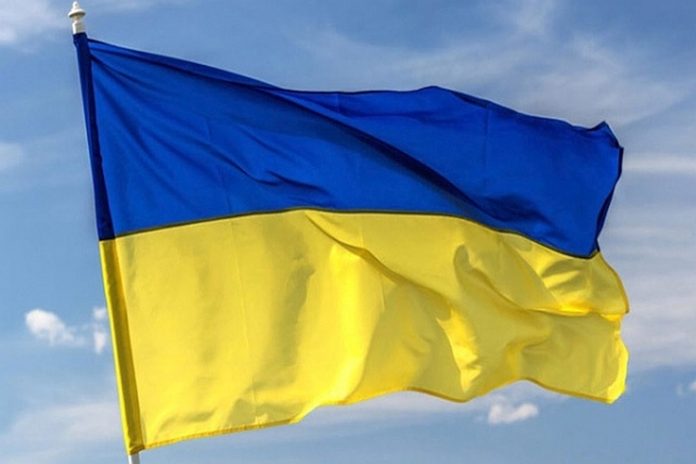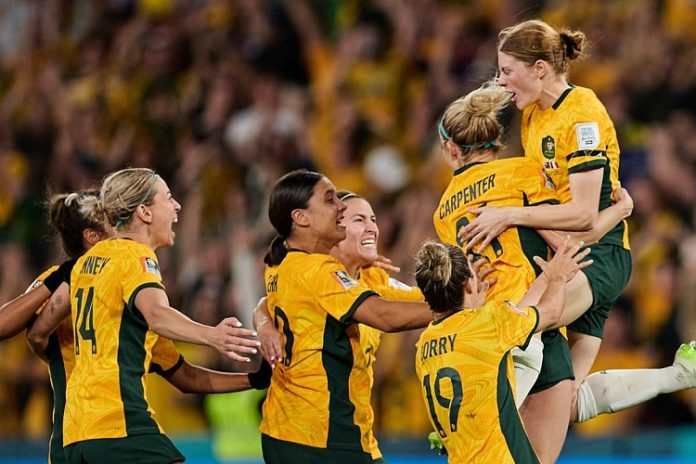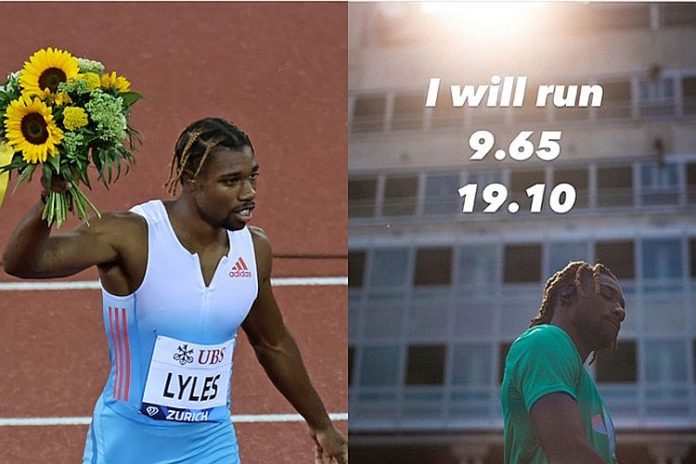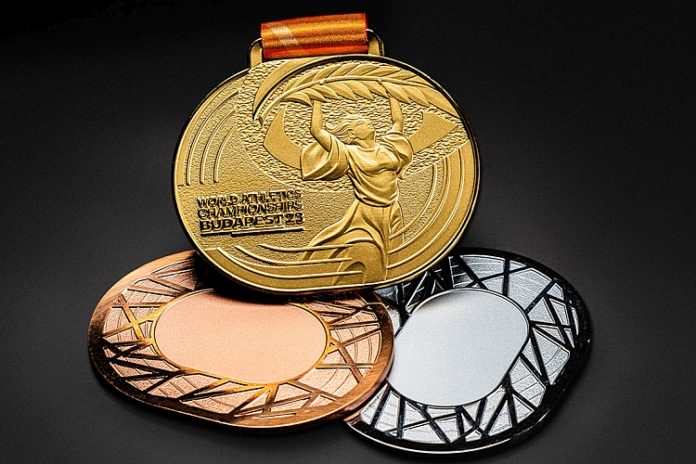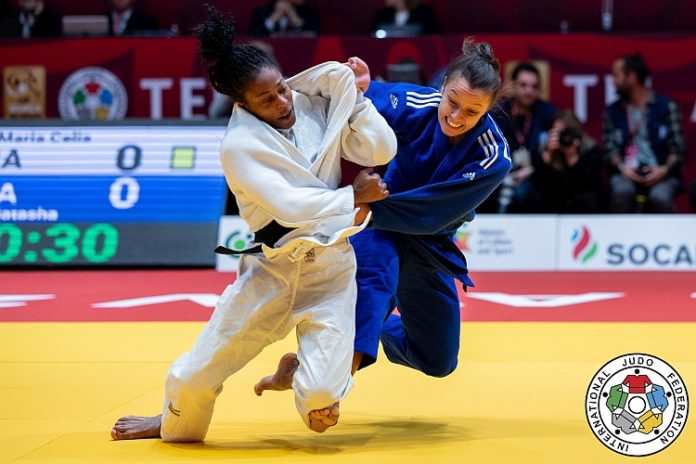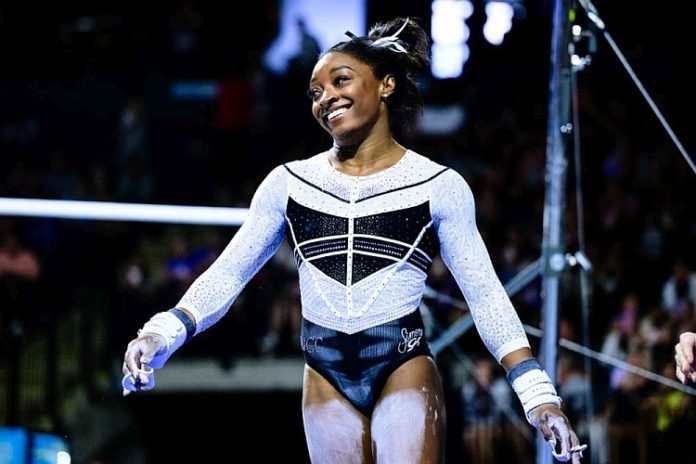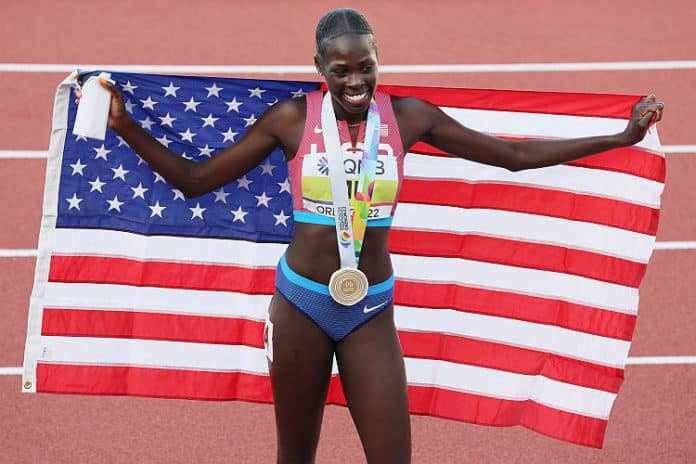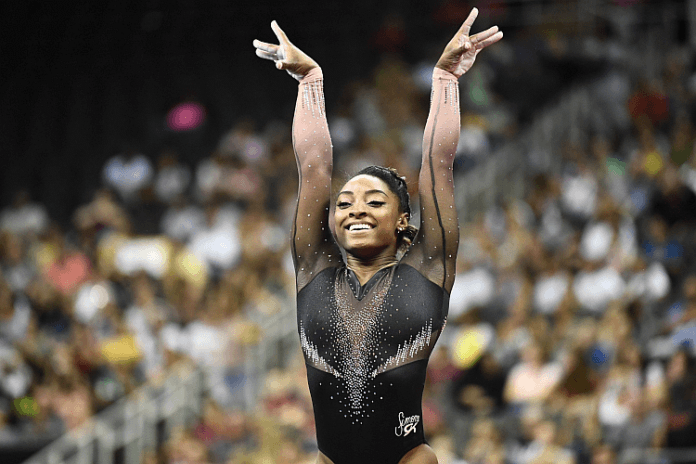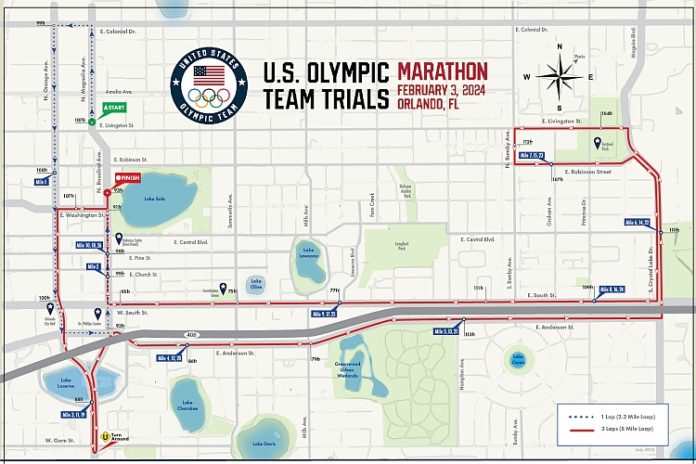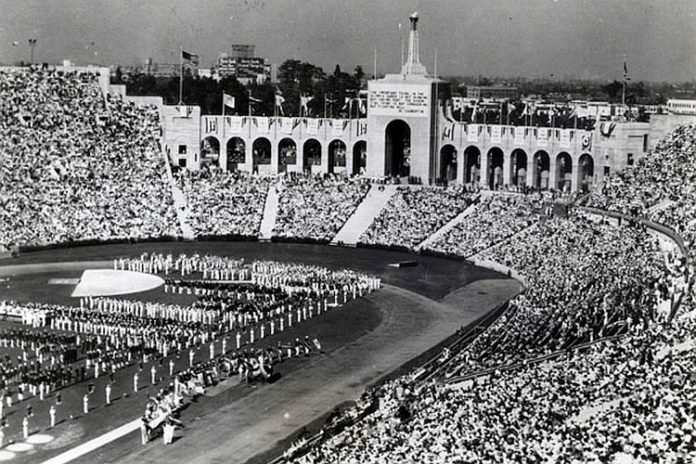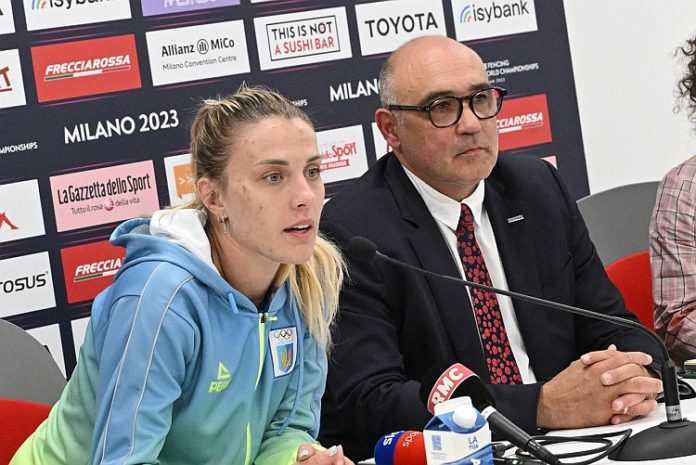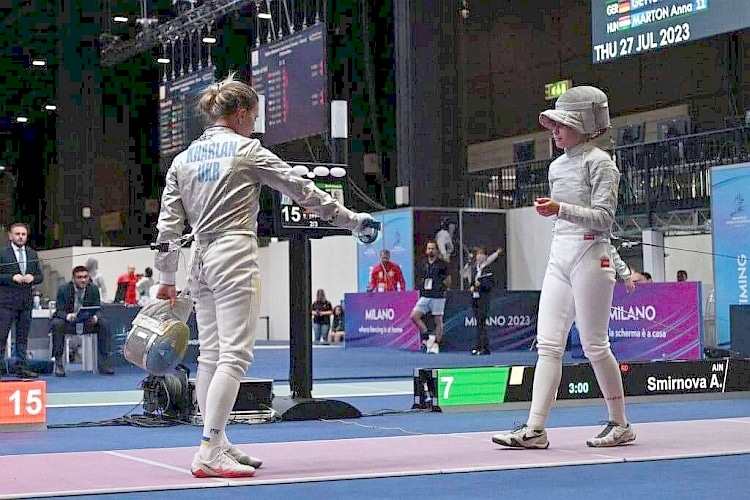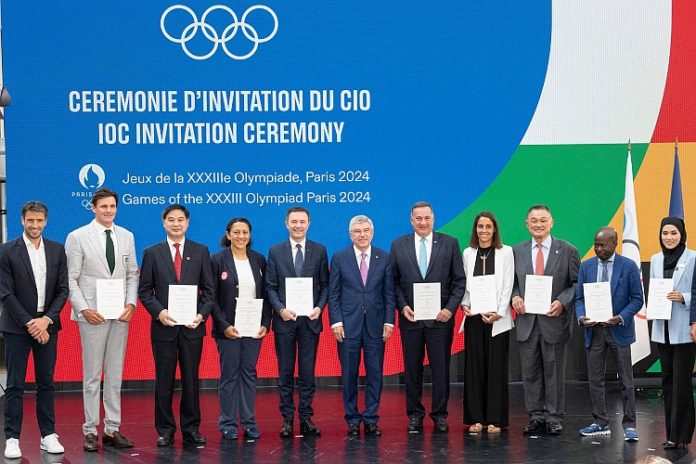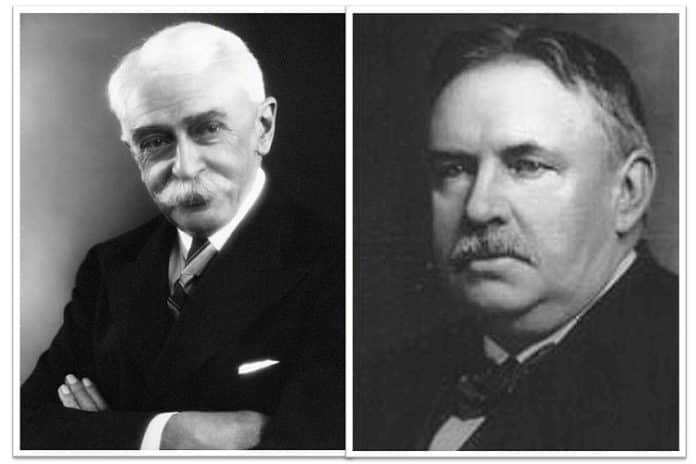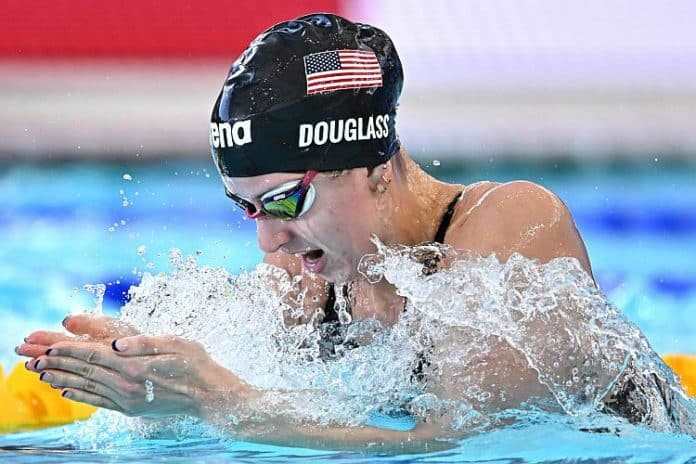★ The Sports Examiner: Chronicling the key competitive, economic and political forces shaping elite sport and the Olympic Movement.★
★ To get The Sports Examiner by e-mail: sign up here! ★
≡ THE 5-RING CIRCUS ≡
1. Olympic Council of Asia forbids protests at Asian Games
2. Australian Senate asks to “salvage” ‘26 Commonwealth Games
3. Athletics Integrity Unit appeals Amusan clearance
4. U.S. Soccer moving to Atlanta from Chicago
5. Obstacle proves too much for 27% of World Junior entrants
● The Olympic Council of Asia said that protests will not be allowed at the 2023 Asian Games, set to begin in Hangzhou, China on Saturday. Any such protest will be met with a loss of accreditation for the individual concerned. The edict was met with anger from those favoring athlete expression.
● An interim report from an Australian Senate committee said that the Australian government should try to “salvage” the 2026 Commonwealth Games by finding a replacement host in Australia, to replace Victoria, which backed out in July. The same report questioned the wisdom of the renovation of the Gabba stadium in Brisbane for the 2032 Olympic Games, when athletics could be held in Cararra, used for the 2018 Commonwealth Games, as well as building a canoe-slalom facility, when one already exists in the Sydney area, used for the 2000 Olympic Games.
● The Athletics Integrity Unit filed a notice of appeal on Friday on the clearance on “whereabouts failure” charges for Nigerian star hurdler Tobi Amusan, who won the Diamond League title on Sunday in Eugene. The appeal to the Court of Arbitration for Sport could wipe out her win and subject her to a lengthy suspension. The AIU annual report for 2022 illustrated a vigorous testing program, with special attention to countries considered likely to have doping.
● The U.S. Soccer Federation, the wealthiest of the American National Governing Bodies, got a $50 million donation from The Home Depot founder Arthur Blank and will move its headquarters from Chicago to Atlanta and build a national training center for all of its teams. Site selection is ongoing.
● At the World Junior Championships in modern pentathlon held in Lithuania held over the weekend, the obstacle discipline was included for the first time and while the men’s entries managed to complete the course 83% of the time, the women completed it only 55%, for an overall average of 73% success. It’s a major shift, for which the competitors – especially the women – were not fully prepared.
● World Championships: Wrestling (Russian “neutrals”
win two in men’s Freestyle) ●
● Panorama: Archery (U.S. teen Kaufhold ascends to no. 1 Recurve ranking) = Athletics (Budapest sold 80.7% of all tickets available for Worlds) = Football (2: UEFA head says no Russian teams until Ukraine invasion ends; Spain calls up 15 members of Women’s World Cup team for UEFA Nations League matches) = Shooting (ISSF World Cup wraps in Rio) = Sport Climbing (IFSC reaches 100 member federations) ●
● Errata ● Some readers of Monday’s post saw that Vuelta a Espana winner Sepp Kuss was the third American winner of a Grand Tour; nope: it’s four: also Vuelta winner Greg Horner in 2013; Greg LeMond, who won the Tour de France three times, and Andrew Hampsten, the 1988 Giro d’Italia winner. Thanks to Dr. Bill Mallon for the correction. ●
1.
Olympic Council of Asia forbids protests at Asian Games
“We will not allow any protest, religious or political.
“Please ensure that your athletes are aware of this. If there is any form of protest we will withdraw the accreditation.”
That’s from Olympic Council of Asia Acting Director General Vinor Kumary Tiwari (IND), speaking on Sunday to the Chefs de Mission getting ready for the 2023 Asian Games in Hangzhou (CHN), which begin on Saturday (23rd).
A prior warning on Friday (15th) noted a ban on:
“Banners, slogans and other promotional materials that promote political, racial, religious or commercial content and violate the OCA Constitution and Rules, or Chinese laws and regulations (Religious items for personal use are permitted).”
The OCA announcement added that “This rule applies especially to the victory ceremony, when an athlete can display the flag of their country or region but no other props are allowed, including photos and posters.”
The activist group Global Athlete posted an angry reply on Monday, titled “The Olympic Council of Asia Openly Threatens and Silences Athletes” and included:
“The OCA’s archaic approach to limiting athletes’ rights to freedom of expression is a clear demonstration that sport systems continue to believe they can operate in silo without adherence to globally accepted human rights. This decision from the OCA appears to favour China’s authoritarian rule of law that rejects freedom of expression over every athlete’s civil liberties. …
“Silencing the athlete voice within sporting organisations has led to oppression, discrimination, and abuse of athletes – restricting their basic human rights has, and will, do the same.”
Observed: Interestingly, the OCA’s restrictions for the 2023 Asiad are out of line with the International Olympic Committee’s Rule 50.2 Guidelines – Olympic Winter Games Beijing 2022 which restrict protests only to the Olympic Village, official ceremonies and on the field of play.
The IOC interceded in the OCA’s business, saying that it was not possible to allow Russian or Belarusian athletes to compete due to “technical reasons.” Will it intervene here, and have the OCA (and the Chinese hosts) send out a “clarification”?
2.
Australian Senate asks to “salvage” ‘26 Commonwealth Games
A 97-page interim report, Australia’s preparedness to host Commonwealth, Olympic and Paralympic Games, was presented last week by the Australian Senate’s Rural and Regional Affairs and Transport References Committee, asking pointed questions about the abandonment of the 2026 Commonwealth Games in Victoria and the A$2.7 billion redevelopment of the Gabba stadium and surrounding area for the 2032 Brisbane Olympic Games.
The committee was unimpressed with the way that the Victoria government canceled its hosting of the 2026 Commonwealth Games in July, after signing on to the event in 2022. Victoria Premier Daniel Andrews said at the time that the expected cost of A$2.6 billion had ballooned to A$6 billion or more ($1.68 to $3.87 billion U.S.) and was too expensive. Victoria had to pay A$380 million ($244.85 million U.S.) to the Commonwealth Games Federation to break its agreement to host.
The report noted “the Victorian Government’s refusal to cooperate with the inquiry,” and the chaos now surrounding the promises which had been made to the participating communities for new housing and sports facility upgrades. And there was this:
“[T]he committee was surprised and disappointed to observe the passive approach the Government appears to be taking in relation to the cancellation. While the abrupt cancellation of the 2026 Commonwealth Games is not the Australian Government’s fault, the consequences affect Australia’s reputation and therefore there is a role for the Australian Government to get active in trying to find a solution.
“The committee has not reached a view on which alternative cities could, or should, host a salvaged 2026 Commonwealth Games. However, the committee notes the willingness of the City of Gold Coast to engage in this process. This is a matter for the Australian Government to evaluate. However, given the constrained timeframe to salvage the Games, and concurrent fiscal and cost of living pressures, the committee endorses the principle that alternative options should maximise the use of existing sporting, transport and housing infrastructure across Australia.”
But its view is clear:
“The committee recommends that the Australian Government takes on a facilitation and coordination role in order to salvage the 2026 Commonwealth Games being held in Australia.”
To ensure this incident is not repeated:
“The committee recommends that the Australian Government develops guidelines for future major sporting events which make Commonwealth funding, regulatory, policy and operational support conditional on state and territory governments being required to notify the Australian Government well in advance of cancelling, or making major changes to, a major sporting event for which hosting rights have been awarded.”
¶
As far as the 2032 Olympic Games is concerned, the report worried about the cost and scope of the redevelopment of the famed Brisbane Cricket Ground – The Gabba – and the surrounding area, now estimated to cost A$2.7 billion or about $1.74 billion U.S.:
“It may also be unwise and inappropriate for the Government to insist that a redeveloped Gabba host the athletics for the Games. Affected stakeholders pointed out that the Gabba could be redeveloped in its current footprint without the need to demolish the East Brisbane State School or develop Raymond Park.
“State governments should not use major events as an excuse to fast-track already-planned urban development against the wishes of their citizens and local communities, and without due diligence.
“The Gabba redevelopment should be subject to the same requirements for consultation as any development proposal, and required to be based on a sound business case. The Queensland Government should be honest with Queenslanders about why this project is being undertaken.
“Relocating the students of the East Brisbane State School to a new school location outside of the catchment area – where children can no longer walk or ride to school – represents a permanently poor outcome for the affected community that will outlast the 2032 Games. The Queensland Government needs to sit down with the community and find a solution that is acceptable – keeping front of mind over a century of history being weighed against a single event.”
Similarly, questions were raised about the construction of a canoe-slalom facility at Redland, with a comment:
“The history of whitewater facilities built for previous Games suggests there is a high likelihood that the facility could become a drain on the community and public funds in the future. This evidence would suggest that Australia does not need, and cannot sustain, two whitewater facilities.”
A facility for this sport already exists, and is in use, in the greater Sydney area, site of the 2000 Olympic Games.
The recommendations call for a further review by the Queensland government of the decision to hold athletics at the Gabba and the redevelopment of the nearby school and park; even the International Olympic Committee in its review of the Brisbane proposal noted that the Carrara Stadium – used for the 2018 Commonwealth Games – would be suitable.
As far as the new canoe-slalom center, “[i]f it is feasible to host the events at the Penrith Whitewater Centre in New South Wales, including with refurbishments, this option should be prioritised over building a new facility.”
The Queensland government is mostly ignoring the report, with Tourism and Sport Minister Stirling Hinchliffe explaining Friday: “The Gabba is the way in which we will deliver a world-class experience not just for the Games, but for Queensland and for Brisbane for decades to come.”
The final report is expected to be delivered in December.
3.
Athletics Integrity Unit appeals Amusan clearance
Nigeria’s 2022 World Champion and world-record setter Tobi Amusan had a big finish to her 2023 season with a 12.33 win at the Prefontaine Classic in Eugene on Sunday to take the Diamond League title in the women’s 100 m hurdles.
Maybe.
The Athletics Integrity Unit noted Monday that it has filed a notice of appeal on its provisional suspension from July that was overturned:
“The AIU filed an appeal last Friday (15 September 2023) with the Court of Arbitration for Sport (CAS) against the Disciplinary Tribunal’s decision, dated 17 August 2023, that Tobi Amusan did not commit an anti-doping rule violation for Whereabouts Failures.”
Amusan was charged with three “whereabouts” failures on 18 July and appealed to the Athletics Disciplinary Tribunal, which cleared her on 17 August:
“A panel of the Disciplinary Tribunal, by majority decision, has today found that Tobi Amusan has not committed an Anti-Doping Rule Violation (ADRV) of three Whereabouts Failures within a 12-month period. …
“Amusan’s provisional suspension has now been lifted with immediate effect.”
Amusan competed on 18 July in Hungary and won in a fast 12.35, but did not compete again until the World Championships in Budapest, where she finished sixth in the final. She then waited to compete again until the Prefontaine Classic, with her win earning her $30,000, which could now be in jeopardy.
¶
The AIU published its annual report for 2022 last week, with Board Chair David Howman (NZL) noting in his opening message:
● “We collected 10,686 samples from 2,779 athletes representing 136 nationalities. Out-of-competition samples accounted for 67% of the samples collected.”
● “[A]ll qualifiers from ‘Category A’ National Federations – those deemed to pose the highest doping risk to athletics in 2022 – were declared eligible for the [2022] World Championships after meeting the minimum testing requirements as set out under the World Athletics Anti-Doping Rules (Rule 15).
“It was great to see full compliance by five of the seven ‘Category A’ National Federations: Bahrain, Ethiopia, Kenya, Morocco and Nigeria. Meanwhile, seven Ukrainian athletes were given exemptions due to extenuating circumstances because of the war, though 15 of their team-mates fulfilled the testing obligations. Belarus – the other ‘Category A’ nation – did not compete in Eugene.
“In total, 156 athletes from six ‘Category A’ countries were entered for the World Championships, with 1206 out-of-competition tests conducted since 1 January 2022 at domestic level (excluding AIU tests).”
● “To stave off the prospect of any possible international ban from competition, the Kenyan Government pledged US$25 million ($5 million annually for five years) in late 2022 to fight doping in athletics. A Steering Committee – primarily comprising the AIU, ADAK and Athletics Kenya (AK) – was set up to oversee the disbursement of government’s funding and track its usage.”
● “[S]temming from the AIU’s investigation of 17 reports of suspicious competition results during the qualification period for the Tokyo 2020 Olympic Games … [s]even Member Federations – Albania, Armenia, Georgia, Kyrgyzstan, Moldova, Turkey and Uzbekistan – were placed on the Watch List which reflects the high degree of risk of results manipulation within those organisations.”
The AIU did all this on a budget of $8.88 million for 2022, of which testing and results management consumed $2.97 million. In terms of testing, distance running was overwhelmingly the biggest focus, with 24.3% of all tests on track events and 23.1% on road events (total: 47.4%). The sprints were next at 17.4% and then throws (11.4%), jumps (10.5%), middle distances (10.2%) and multi-events (3.0%).
The most-tested areas were Africa (36.8%), Europe (31.8%), then North America (18.0%), Asia (9.2%), South America (2.8%) and Oceania (1.5%).
4.
U.S. Soccer moving to Atlanta from Chicago
The most financially successful U.S. National Governing Body, the U.S. Soccer Federation, is heading south after a Friday announcement of a new national headquarters and National Training Center in Atlanta.
The USSF has been in Chicago since 1991, and in New York and Colorado Springs before that, but will now head to Atlanta thanks to a $50 million gift from The Home Depot founder Arthur Blank, who owns the NFL’s Atlanta Falcons and Atlanta United of Major League Soccer:
“The facility will serve as headquarters for the U.S. Soccer Federation, creating a central hub for the entire soccer community, including coaches and referees, to access best-in-class training, technology and infrastructure to promote successful and sustainable playing environments throughout the country. For players, the National Training Center will provide the best environment, guaranteeing uninterrupted access to elite infrastructure for training, development, recovery and performance analysis – cultivating expertise and excellence in the sport on an international level.
“While the National Training Center will be utilized by all 27 of U.S. Soccer’s National Teams, part of Blank’s contribution will specifically go towards the construction of facilities for U.S. Soccer’s nine Extended National Teams (ENTs), particularly in support of the Cerebral Palsy (CP), Deaf, and Power Soccer National Teams, including thoughtful design of locker rooms and training facilities to maximize accessibility for players.”
Site selection is continuing and is expected to be announced in early 2024. Atlanta’s Mercedes-Benz Stadium has already been selected as a site for the 2026 FIFA World Cup.
U.S. Soccer reported assets of $171.67 million in its 2022 financial statement, with $108.34 million in reserves. It had $117.75 million in operating revenues in 2022, against operating expenses of $145.37 million before investment gains of $3.11 million net. Having the 2026 FIFA World Cup in the U.S. is expected to open new opportunities for the federation to expand interest nationally and internationally.
5.
Obstacle proves too much for 27% of World Junior entrants
The UIPM World Junior (U-22) Championships in Druskininkai (LTU) were of interest not only for the outcomes, with individual wins by France’s Mathis Rochat and German Josefine Unterberger, but also the implementation of the new obstacle discipline that will completely replace riding beyond 2024.
With very few chances for practice, the new concept was challenging, so much so that 27% of all entries in the event were eliminated in the obstacle discipline and scored no points in that event. Athletes could – and did – continue, with Unterberger being eliminated in the qualifying round, but scoring enough in the other events to make it to the final and win! But the women had a tough time:
● Men/qualifying: 55 completed, 11 eliminated (83.3%)
● Women/qualifying: 27 completed, 17 eliminated (61.4%)
● Team/Men: 14 completed, 3 eliminated (82.4%)
● Team/Women: 4 completed, 8 eliminated (33.3%)
● Team/Mixed: 11 completed, 2 eliminated (84.6%)
The overall count was 111 completions and 41 eliminations for an overall success rate of 73.0%. The men did well, with a combined 69-14 for 83.1% success, but the women completed only 31 of 56 tries, or 55.4%.
Eliminations in the obstacle discipline are assigned for various reasons, most often for failing to complete an obstacle on two tries, but also for interference with a competitor.
The activist Pentathlon United athlete group posted a redacted message from one athlete that included, “I thank you [heart] I am so mad at all UIPM now, I really wanted to enjoy my last championships in juniors, but ocr completely destroyed it. [sad face]”
The Modern Pentathlon is not, at present, on the program for the 2028 Olympic Games in Los Angeles and was charged by the IOC with improving its events and widening its popularity. It has put all of its hopes on incorporating obstacle racing as one of its four events – running and shooting are combined into the Laser Run – to the point of agreeing to absorb the FISO, the international federation for obstacle racing that was formed in 2014.
No senior-level events have been held with obstacle included since the format for the Paris 2024 competition still includes riding, part of the modern pentathlon as introduced by Baron Pierre de Coubertin (FRA) at the 1912 Olympic Games in Stockholm (SWE).
The other sports that were not included for 2028 are boxing – which has since been assured a place after the withdrawal of recognition of the International Boxing Association – and weightlifting, which has drawn positive comments from IOC officials as it has revamped its governance and anti-doping processes. Very little has been said about pentathlon, but the issue is expected to be resolved at the IOC Session in India in October.
≡ WORLD CHAMPIONSHIPS ≡
● Wrestling ● Russian wrestlers, competing as “neutrals” won two men’s Freestyle classes on Monday at the UWW World Wrestling Championships in Belgrade (SRB).
At 74 kg, Zaurbek Sidakov, the Tokyo 2020 Olympic champ, won his third world title with a 10-7 victory over four-time champion Kyle Dake of the U.S. The match was tied 3-3 in the final period when a flurry of takedowns and reverses led to a challenge that eventually had Sidakov leading 8-7, and another challenged decision gave Sidakov two more points for the 10-7 final.
In the 79 kg class, Russian Akhmed Usmanov defeated Georgia’s Vladimir Gamkrelidze in the final by 4-1, with Iranian Mohammad Nokhodi and Ukraine’s Vasyl Mykhailov. During the awards ceremony, Mykhailov exited the podium prior to a joint photograph of the medal winners, refusing to stand with Usmanov.
In the 57 kg final, Serbia’s Stevan Micic – U.S.-born and a two-time NCAA medalist at Michigan – thrilled the home fans with a win over Rei Higuchi (JPN), the 2022 Worlds winner at 61 kg, by 7-4.
The 92 kg crown went to Kazakhstan’s Rizabek Aitmukhan, 5-2, over two-time Worlds bronze winner Osman Nurmagomedov, with American Zain Valencia taking a bronze – his first Worlds medal – along with Feyzullah Akturk (TUR). It’s the sixth medal for the U.S. men so far in Belgrade.
There had been a Russia-Ukraine match at 61 kg on the 16th, with Russian Abasgadzhi Magomedov winning over Ukrainian Valentin Blesetsky; the two did not shake hands afterwards. Russian Wrestling Federation President Mikhail Mamiashvili told the Russian news agency TASS that while no express instructions were given to Russian wrestlers by United World Wrestling, “they were simply warned to react adequately.”
≡ PANORAMA ≡
● Archery ● American Casey Kaufhold, 19, has moved to the no. 1 ranking in World Archery’s women’s Recurve Division, the first American woman to reach the top since rankings began in 2001.
The rankings use a points-accumulation system, and Kaufhold has been solid this season, with a fourth at the World Championships, another fourth at the World Cup Final and a won at the Paris World Cup, which doubled as the test event for Paris 2024.
All of that elevated her to 281 points, passing Britain’s Penny Healey, now second. Two other American women are in the top 50: Jennifer Mucino-Fernandez at 42nd and Catalina GNoriega in 46th.
Brady Ellison continues as the top American in the men’s Recurve (Olympic) rankings, in fourth. Next is Jack Williams, in a tie for 28th. Brazil’s Marcus D’Almeida, the 2023 Worlds bronze winner and World Cup Final champion, continues at no. 1.
● Athletics ● More details are becoming available concerning attendance at the 2023 Worlds in Budapest, with 404,088 tickets claimed of 423,090 that were available, meaning that 95.5% of all tickets were distributed.
However, that does not mean that all of these tickets were sold. A Budapest Business Journal report noted:
● Tickets sold totaled 341,555 (80.7% of all available), with the remaining 52,533 distributed for free. About 10,000 tickets were used for school children and another 10,000 for underserved groups. The remainder were used for guests and news media.
● The nine evening sessions drew 267,331 or 29,703 each, and the five morning sessions drew 136,757 or 27,351 on average, at the 35,000-seat National Athletics Centre.
● Spectators came from 120 countries, with the biggest contingents from Great Britain, then Germany and the U.S. About 40% of all tickets sold went to buyers outside Hungary.
An estimated 30,000 visitors came to the event from outside of Hungary, an important figure for future organizers in Europe to note regarding hotel availability.
● Football ● UEFA President Aleksander Ceferin (SLO) told the Sportklub site in a Sunday post:
“The Russians will return to football only when the war in Ukraine ends.”
He also explained why the federation ended its commercial relationship with the Russian energy giant Gazprom after the start of the Russian invasion of Ukraine in February 2022:
“It simply had to be done as some sort of symbolic act.
“It is difficult after the start of the war over the stadium, where hundreds of millions of people watch the games, to advertise for this company. I’m sorry, but we had to do it. But it is also a fact that those who still buy gas from the same company are the ones who complain the most about this issue.”
¶
The drama in Spain continues as the Royal Spanish Football Federation’s new women’s coach, Montse Tome, called up 23 players for UEFA Nations League matches coming up against Sweden on Friday (22nd) and Switzerland on the 26th.
Of the 23, 15 are from the FIFA Women’s World Cup championship team, and 20 are signatories to a message from 39 players who said they will not play for the national team again until further changes are made. Tome said she expected them to report for practice on Tuesday.
Spanish law requires players to report if called up, with significant financial sanctions and possibly suspensions if they do not appear.
Midfielder Jenni Hermoso, at the center of the turmoil over the actions of ex-RFEF President Luis Rubiales, was not called up. Said Tome, “We are all with Jenni and with all of the players. I believe this was the best way to protect her.”
● Shooting ● On the final day of the ISSF World Cup in Rio de Janeiro (BRA), France’s Tokyo Olympic champ Jean Quiquampoix won the men’s 25 m Rapid-Fire Pistol, 34-30 over China’s Zhiming Lu, and Norway’s 2022 Worlds bronze winner Jeanette Hegg Duestad won the women’s 50 m Rifle/3 Positions event, scoring 461.5 to 458.0 for Nischal Nischal (IND).
China finished with eight medals overall (1-4-3) and Italy (2-0-1), Hungary (1-1-1) and Norway (1-1-1) each had three.
● Sport Climbing ● The International Federation of Sport Climbing (IFSC) announced the addition of federations from Guam and Nigeria, reaching the 100 mark in total affiliated federations.
The IFSC started in 2007, with 57 founding members.
¶
You can receive our exclusive TSX Report by e-mail by clicking here. You can also refer a friend by clicking here, and can donate here to keep this site going.
For our updated, 787-event International Sports Calendar (no. 3) for 2023 and beyond, by date and by sport, click here!









